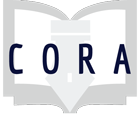This assignment asks students to find a real Call for Papers and write a 6-8 page researched argument that contributes original ideas to an academic conversation.
Assignments
In this workshop, students learn about the driving forces behind fake news, reflect on how our opinions impact the way we evaluate information, and discuss and practice using criteria for evaluating news. The workshop includes a brief presentation on fake news and cognitive biases, reflection prompts for students to respond to, and an activity in which students work in groups to evaluate different news articles on a common topic.
A gallery walk is a silent, interactive exercise followed by small- or whole-group discussion. You can use this exercise to introduce students to new material, to review previously-introduced material, or to assess teaching and/or learning.
Students in an introductory Women's and Gender Studies course are required to critically analyze and edit an article in Wikipedia. Through class discussion and an active learning exercise, students begin to understand how and why women and many racial groups and individuals are underrepresented or systematically marginalized in Wikipedia. Students learn how to use the "Talk" tab to evaluate Wikipedia articles and learn about authority and power structures within that community.
These materials support a workshop for seniors on losing access to information after graduation. After a short lecture on why information costs money, we used each exercise, which focus on students making their work open, to encourage students to think critically about how their information sharing decisions impact others. We used three types of exercises--academic, creative, and work/corporate--to acknowledge that students are creators of multiple kinds of information.
This assignment is a non-partisan way to interrogate the way the 45th POTUS uses Twitter using the concepts of Metaphor and Enthymeme. The assignment could be altered to focus on any Twitter handle or trending hashtag. The teacher should give a short 15 minute introduction the concepts and then break students up into small groups to decipher Tweets. The last portion of class is for group presentation/discussion of students findings.
An introductory lesson to finding and understanding data in social sciences.
This class activity is designed to help health sciences students understand challenges to accessing public health information in a variety of settings. The exercise was created for students in Prof. Dailey’s Global Health class (HS 322) at Gettysburg College in Fall 2015.
The activity, as well as notes for instructors considering using this exercise, are both shared here.
This instructional session coincided with a project comparing data from two cities for an Urban Studies 1000 level (Freshmen) course. The session provided a basic overview of Simply Map as a web-based application, described the data available within and its origins (Census, American Community Survey, etc.), two activities for creating and visualizing the data, and supporting materials for understanding the data including a libguide and deliverable handout.
Through a reading assignment, a brief lecture, and small group discussion, students training to be high school teachers learn about Information Literacy (IL) and Critical Information Literacy, and consider how they can apply these concepts within their disciplines and in their teaching practice. This short, 55-minute session was taught for a course called "Foundations in Secondary Education", offered through the Single Subject (Secondary) Teaching Credential program at Saint Mary's College of California's Kalmanovitz School of Education.
